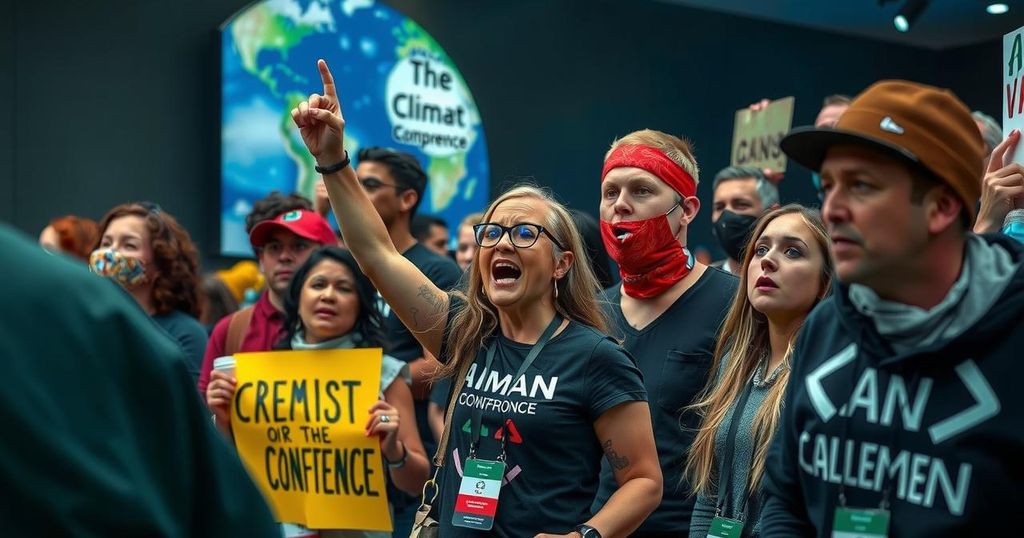COP29: Developing Nations Critique Climate Deal as Insufficient Amid U.S. Leadership Change

At COP29 in Baku, a $300 billion annual target for climate finance was agreed upon, but developing nations labeled it inadequate. Concerns persist about U.S. commitment following Trump’s upcoming presidency, with potential implications for international climate cooperation and funding goals. As global climate disasters intensify, the need for effective climate action remains urgent.
At the recently concluded COP29 summit in Baku, leaders set a global financing target of $300 billion annually to assist developing nations in addressing climate change impacts. Despite the intention behind this agreement, many developing nations criticized it as grossly inadequate. UN Secretary General Antonio Guterres expressed disappointment, stating, “I had hoped for a more ambitious outcome—on both finance and mitigation—to meet the great challenge we face.” He called for prompt and full commitment to the deal.
While President Joe Biden congratulated the summit participants for their efforts, concern looms over the incoming Trump administration’s approach to climate finance. Trump has previously referred to climate change as a “hoax” and has promised to withdraw the United States from international climate agreements, raising doubts about U.S. contributions to the funding goals established in Baku. Additionally, his appointment of Chris Wright, a known proponent of fossil fuels, to the Department of Energy has further compounded these concerns.
Amidst rising geopolitical tensions and a growing list of national crises, the urgency of climate action appears diminished in many Western governments’ agendas. Over the past year, environmental disasters have plagued both developing and developed nations, from devastating floods in Africa to severe droughts in South America and destructive rains in Spain resulting in significant loss of life. With climate scientists predicting this year to be the hottest on record, the call for actionable climate finance becomes more critical than ever.
The COP29 summit was held in Baku against a backdrop of increasing urgency regarding the consequences of climate change. Rising global temperatures and extreme weather events are devastating communities worldwide, making effective financing for climate action essential, especially for vulnerable developing nations. The agreement reached is seen as a foundational step, but its sufficiency and the commitment from major economies, particularly the U.S., are pivotal for its success and sustainability. Historical responsibility for emissions and current geopolitical instability present further challenges to fulfilling ambitious climate goals.
The outcomes of COP29 highlight a growing divide between the expectations of developing nations and the commitment of developed countries to tackle climate change. With the anticipated changes in U.S. leadership potentially undermining international climate finance efforts, urgent action and cooperation are necessary to address the escalating climate crisis. This summit, though a foundational step, is just the beginning, and the path forward must prioritize meaningful commitment and accountability from all nations involved.
Original Source: al24news.com






